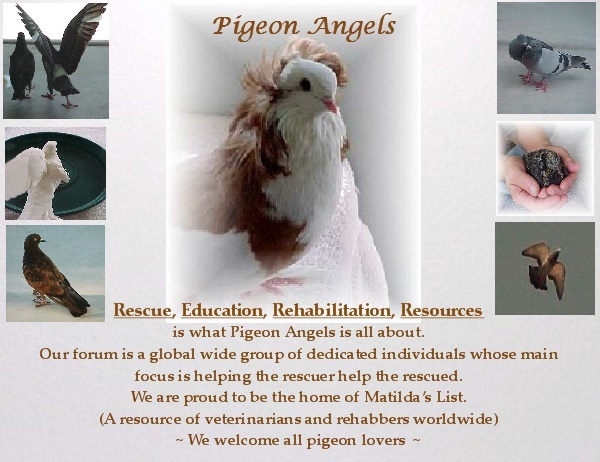Slow Crop in Pigeons
December 21, 2009 PigeonRacingFan 11 comments
Slow Crop in Pigeons
http://pigeonracingpigeons.com/2009/12/21/The crop of healthy pigeons should empty within 12 hours if fed twice daily and within 24 hours if fed once daily. Delayed crop emptying can be the initial indication to the fancier that all is not well with the team.
Often the problem is first noticed when birds are picked up for a morning toss and are found to have food in their crops from the day before. Alternatively birds may not appear normally hungry and trap sluggishly simply because they still have food in their crops, waiting to be digested, from their last feed.
And so what are the possible causes of delayed crop emptying? I find it easiest to group potential causes into four categories, namely, problems with the food, the crop itself, the environment or the body generally.
The crop
The crop is the dilated area of the oesophagus (the tube from the throat to the stomach). It is the initial place that swallowed food comes to rest. In health it is a functional, contracting, muscular sac. At the completion of the meal it begins pushing boluses of food through into the stomach. Anything that inflames the crop wall interferes with this function. Common infectious causes include wet canker, thrush, and bacterial infections (often E coli.). Microscopic examination of a sample of fluid taken from the crop i.e. a crop flush, can be used to identify a problem.
Food
Feeding poor quality food contaminated with bacteria, fungi, or toxins will lead to a slow crop.
The Body
One of the initial subtle ways that race birds have of showing us that all is not well is a crop that takes too long to empty. Frustratingly the list of possible health causes is virtually endless. The problem could be a disease elsewhere in the body that is not immediately associated with crop function e.g. worms or Coccidia. Alternatively it could be one of flock management that indirectly effects the birds well being e.g. over-training. Exposure to heavy metals such as zinc and lead is an often over looked problem. Drinkers, storage drums or feed trays made of galvanized metal can all expose the birds to these toxins. Quickly absorbed but slowly excreted they accumulate over time leading to a range of health problems including delayed crop emptying and even infertility.
The environment
Basically birds from lofts that fail to provide a sense of well being can be expected to experience delayed crop emptying. This may be because they fail to provide an environment conducive to health. For example they may be cold and damp. Alternatively they may fail to provide a sense of security so that the birds do not rest properly or may be poorly set up leading to excessive territorial disputes etc.


